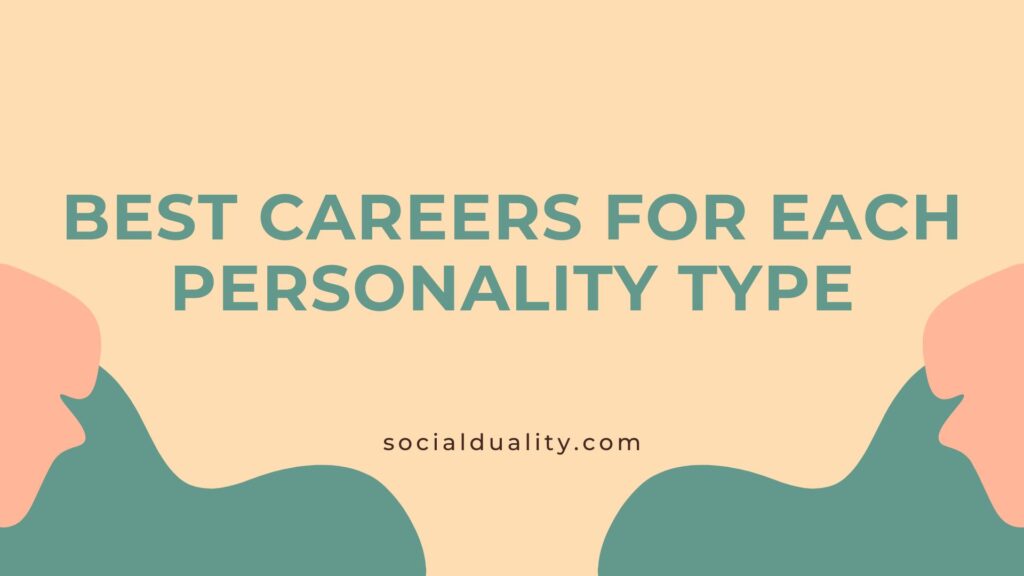The Myers-Briggs Type Indicator helps match personality types with job compatibilities. Created by Isabel Briggs Myers and her mother, it sorts people into 16 types. This tool aids in finding ideal careers that suit each personality. For example, the ISFP personality types enjoy creative and flexible roles. Meanwhile, the INFP personality type thrives in expressive careers.
Choosing the right career path can boost happiness and success at work. Understanding your Myers-Briggs personality type is key. This type indicator instrument can guide career-advice seekers. People gain insights into personality-driven choices. With this tool, career paths become clearer and more fulfilling.
Key Takeaways
- Myers-Briggs Personality Types can guide people to find ideal careers that match their traits.
- INFPs enjoy creative roles, while ISFPs like hands-on and flexible jobs.
- ESTJs thrive in structured positions, and ISTJs excel in detail-oriented workplaces.
- INFJs and ENFPs prefer jobs where they can use empathy and creativity.
- Career-advice seekers can use the Myers-Briggs Type Indicator to enhance job satisfaction.
Understanding Myers-Briggs Type Indicator
Exploring the Myers-Briggs framework gives insight into how various personalities fit into the workplace. For instance, the INFP personality type often finds joy in careers like writing, where creativity shines. Meanwhile, careers for MBTI like the dynamic roles suited for ENFPs offer room for innovation. When considering career-advice, understanding these preferences helps people find their true calling. ISTJs enjoy roles demanding precision, while ENTJs excel in leadership. Each type has a careers ideal that aligns with their nature. Success follows when individuals match their career paths to their unique type. Here’s how different types connect with careers:
- INFP: Creative roles
- ENTJ: Leadership
- ISTJ: Precision-based jobs
- ENFP: Innovative positions
- ISFJ: Supportive roles


Exploring the 16 Personality Types
Exploring these 16 unique traits, people often find themselves in roles that fit their nature. The career-advice for INFPs often leads them to creative fields, while ESTJs shine in leadership roles. ISTJs thrive in precision-based environments, and ENFPs excel in innovative positions. Understanding these preferences helps in choosing a career based on MBTI, aiming for job satisfaction and growth.
| Personality Type | Careers | Work Environment | Keywords |
|---|---|---|---|
| INFP | Writing, Counseling | Creative, Flexible | Career paths for INFP |
| ESTJ | Management, Law | Structured, Leadership | Top careers for ESTJ |
| ISTJ | Accounting, Data Analysis | Detail-oriented, Reliable | Careers suited for ISTJ |
| ENFP | Marketing, PR | Dynamic, Innovative | Ideal jobs for ENFP |
| INFJ | Counseling, Education | Empathetic, Insightful | Work environments for INFJ |
Ideal Roles for INFP and ISFP
For those with INFP or ISFP preferences, career-advice often highlights roles that align with their creative and empathetic nature. INFPs flourish in professions like writing or counseling, where they can express ideas and connect with people. ISFPs shine in hands-on roles like graphic design or artisan crafts, cherishing freedom and personal expression. These careers are perfect for those who value creativity and connection. Exploring these paths can lead to greater satisfaction and fulfillment.
- Writer
- Counselor
- Graphic Designer
- Artisan Craftsperson
- Musician
- Photographer
- Social Worker
- Therapist


Top Positions for ESTJ and ISTJ
In the realm of careers for MBTI, ESTJs and ISTJs shine in distinct fields. ESTJs often lead with prowess and precision. They excel in management, law enforcement, and military roles. Their knack for organization and leadership is unmatched, making them ideal for structured environments. On the flip side, ISTJs thrive in roles that demand meticulous attention to detail. They make excellent accountants, data analysts, and engineers, where their reliability and analytical skills are invaluable. Their preference for stability ensures job satisfaction and MBTI alignment, enhancing career development. These personality jobs suit their unique attributes well.
| Career Type | ESTJ Roles | ISTJ Roles | Traits Utilized |
|---|---|---|---|
| Organizational | Management | Accounting | Leadership, Reliability |
| Analytical | Law Enforcement | Data Analysis | Precision, Attention |
| Technical | Military Service | Engineering | Structure, Analytical |
| Structured Environments | Project Management | Quality Assurance | Organization, Detail |
| Leadership | Business Leadership | Logistics Coordinator | Decision-making, Planning |
Best Workplaces for INFJ and ENFP
The optimal work environments for INFJ and ENFP personalities cater to their unique traits. INFJs, with their natural empathy, shine in roles that focus on helping others. Careers like counseling or education allow them to use their insight. ENFPs, however, thrive in dynamic settings. Their enthusiasm is best suited for roles in marketing or event planning, where creativity flows. Both types find job satisfaction when they can foster personal growth and innovation.
- Counseling for INFJ
- Education roles for INFJ
- Marketing for ENFP
- Event planning for ENFP
- Psychology for INFJ
- Public relations for ENFP
- Creative roles for ENFP


Successful Paths for INTJ and ENTJ
Successful routes for both INTJ and ENTJ personalities involve tapping into their strengths. INTJs excel in strategic planning, thriving in fields like architecture and science. They love solving complex problems and envisioning long-term goals. ENTJs shine in leadership roles. They flourish in management consulting or entrepreneurship, where they can implement their ideas. Their efficiency makes them natural leaders. Both types enjoy careers ideal for their strengths, leading to higher job satisfaction. Choosing a career based on MBTI can be a game-changer, offering opportunities for personal and professional growth.
| Personality Type | Strengths | Ideal Career Paths | Work Environment |
|---|---|---|---|
| INTJ | Strategic Planning | Architecture, Science | Problem-Solving Focus |
| ENTJ | Leadership | Management, Entrepreneurship | Dynamic & Innovative |
Career Opportunities for ENTP and ISFJ
ENTPs thrive in jobs that encourage innovation and creativity. They excel in technology development and entrepreneurship, enjoying challenges that engage their inventive minds. ISFJs, on the other hand, are nurturing and shine in supportive roles. Careers in healthcare, education, or social services suit them well, allowing them to help others and enjoy job satisfaction. In terms of career advice, understanding how different myers-briggs personality types align with job roles can be pivotal for career development. Both ENTPs and ISFJs can find fulfillment by aligning their strengths with their professional roles, leading to a more rewarding and balanced career path.
| Personality Type | Key Strengths | Best Career Paths | Preferred Work Environment |
|---|---|---|---|
| ENTP | Innovation & Creativity | Technology, Entrepreneurship | Dynamic & Flexible |
| ISFJ | Supportive & Caring | Healthcare, Education | Stable & Nurturing |


Conclusion
Choosing a career is like picking the right puzzle piece. It has to fit just right. Aligning careers with personality types can make this puzzle-solving much easier. The Myers-Briggs Type Indicator gives people a clearer picture of where they might shine.
Every personality type has strengths. Recognizing these strengths can guide individuals toward fulfilling careers. Whether one is an innovative ENTP or a caring ISFJ, there’s a path that suits them. Understanding these traits helps people find joy and purpose in their jobs.
So, what’s the takeaway? Aligning careers with personality types isn’t just helpful—it’s a game-changer. It leads to happier, more fulfilled individuals. And who wouldn’t want that?
What is the Myers-Briggs Type Indicator (MBTI)?
The MBTI is a tool that helps people understand their personalities. It groups people into 16 types based on four preference pairs: Introversion/Extraversion, Sensing/Intuition, Thinking/Feeling, and Judging/Perceiving. This helps identify careers that match personality traits.
How do INFPs and ISFPs differ in career preferences?
INFPs love being creative and often like writing, counseling, or arts careers. They connect with others through their values. ISFPs enjoy hands-on jobs like graphic design or crafts. They value harmony and enjoy roles with flexibility.
Which jobs suit ESTJs and ISTJs best?
ESTJs do well in structured jobs like management, law enforcement, or military roles. They use their organizational skills and leadership. ISTJs excel in detail-oriented jobs like accounting, data analysis, or engineering. They are reliable and analytical.
What are good career choices for INFJs and ENFPs?
INFJs shine in fields like counseling, psychology, or education. They use their empathy to help others. ENFPs enjoy dynamic roles like marketing or event planning. They love workplaces that encourage personal growth and creativity.
What roles suit INTJs and ENTJs?
INTJs are strategic and do well in planning roles like architecture or IT. They handle problem-solving well. ENTJs thrive in leadership roles like executive positions or entrepreneurship. They like implementing ideas and driving change.


